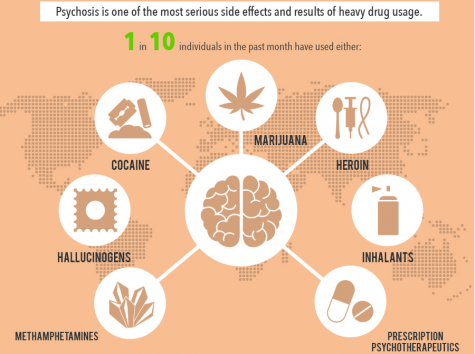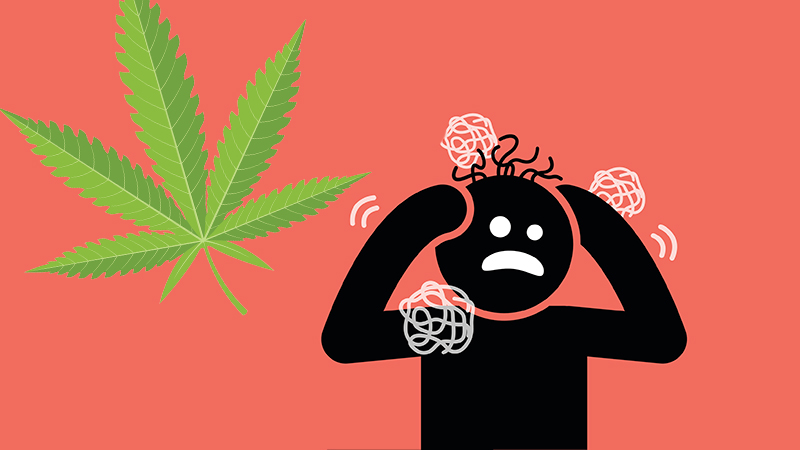Cannabis-Induced Psychosis
| Medscape
Cannabis-induced psychosis, can lead to many health-risks with long term effects.
Trends are showing an increasing use of cannabis in the United States. As the rates rise, there have been links of repeated cannabis use to health-risks. There has been a new psychiatric disorder called cannabis-induced psychosis. The harmful combination of a still-forming mid, high concentration THC products and a still-forming mind can cause cannabis-induced psychosis.
Cannabis induced psychosis is the most common form of substance-induced psychosis and usually requires rapid medical attention. In 2016, about four million Americans aged 12 and over had a marijuana-use disorder, which represents about 1.5% of the population. And in the years after legalization of recreational marijuana in Colorado, the number of teen emergency room visits credited to marijuana use quadrupled. Half of the adolescents admitted required psychiatric evaluations.
The symptoms of cannabis-induced psychosis include delusion, hallucinations, dissociation, anxiety, agitation, and disorganized thoughts and speech. Cannabis-induced psychosis should not be mistaken for cannabis abuse which is still a pattern of abuse that can cause mental and physical problems, but effects only last for 3 to 4 hours. Effects of cannabis abuse include euphoria, extreme drowsiness, altered perceptions, bloodshot eyes, excessive appetite, dry mouth, slowed reflexes, and impaired memory. Repeated cannabis-induced psychosis can trigger schizophrenia or other mental illnesses. Schizophrenia is characterized by thoughts or experiences that seem out of touch with reality, disorganized speech or behavior, and decreased participation in daily activities. To diagnose a cannabis use disorder, medical professionals must identify at least two of the following symptoms in people who admit to using the drug continuously for one year or longer: Frequent overuse of cannabis, contrary to intentions, relapses after previous attempts to quit using cannabis products, use of cannabis and recovering from its effects occupies a significant amount of time, consumption continues despite adverse personal consequences (criminal charges, relationship problems, etc.), cannabis use interferes with daily life responsibilities (parenting, working, attending school, etc.), cannabis use has been implicated in dangerous or reckless behavior, such as driving under the influence, use of the drug continues despite it causing physical or mental health problems, cravings for cannabis are experienced frequently, tolerance for the drug has led to escalating usage, and withdrawal symptoms are experienced when the drug is not used for a few hours or more.

The psychotic symptoms are not temporary but persist for an extended period and continue to cause serious life disruption. Luckily, various combinations of antipsychotics (drugs used to manage psychosis), anti-seizure drugs, and antiepileptics (drugs used in the treatment of epileptic seizures) have been found to speed up the decline of psychotic symptoms of people who’ve been abusing cannabis. The websites below give further information on cannabis-induced psychosis.
https://www.altamirarecovery.com/cannabis-induced-psychosis/
https://www.psychiatrictimes.com/substance-use-disorder/cannabis-induced-psychosis-review






